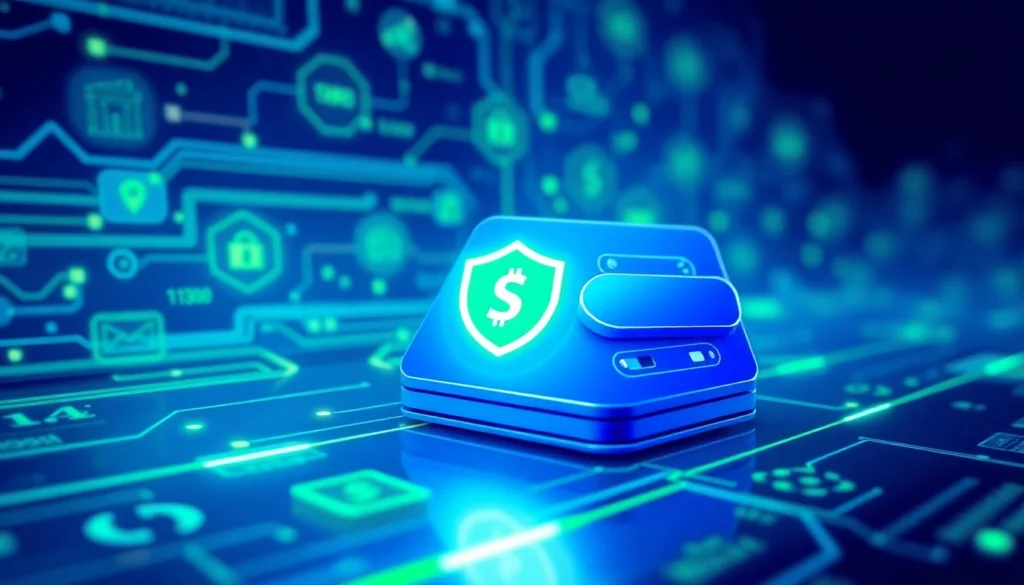
Understanding the Importance of Crypto Wallets in Modern Digital Finance
In the rapidly evolving world of cryptocurrencies, safeguarding your digital assets is paramount. As crypto trading and investments become mainstream, the role of a secure crypto wallet cannot be overstated. Whether you’re a seasoned trader or a beginner, choosing the right wallet and understanding its security features is essential to protect your funds from hacking, scams, and unforeseen mishaps. This comprehensive guide delves into the various types of crypto wallets, security best practices, common pitfalls, and future trends shaping the landscape of digital asset management.
Understanding Crypto Wallet Types and Their Security Features
Hot Wallets vs Cold Wallets: Which Is Safer?
Crypto wallets broadly fall into two categories: hot wallets and cold wallets. Hot wallets are connected to the internet, making them convenient for frequent trading, quick transfers, and quick access to your assets. Examples include web wallets, mobile wallets, and desktop wallets. Despite their accessibility, hot wallets are more vulnerable to hacking attacks because of their constant internet connectivity. Notable incidents like exchange breaches underscore this risk.
In contrast, cold wallets are completely offline, stored in hardware devices or physical mediums such as paper wallets. Their offline nature makes them significantly more secure against online threats, making them ideal for long-term storage of large amounts of crypto assets. Examples include hardware wallets like Ledger Nano S/X and device-free options like paper wallets. When considering safety, cold wallets generally outshine hot wallets, especially for serious investors aiming to minimize risk.
Hardware Wallets: Best Practices for Physical Security
Hardware wallets are physical devices that securely store private keys offline. To maximize security, users should adopt best practices such as purchasing from reputable vendors, keeping devices in secure locations, and enabling PIN or biometric protections. Regular firmware updates from manufacturers enhance security by patching vulnerabilities. Using multi-signature protocols—requiring multiple approvals for transactions—further enhances the safety net.
Additionally, securing the recovery seed phrase, often the only backup of your private keys, is crucial. Store it in a separate, secure location—preferably physical, such as a safe or a safety deposit box—and avoid digital or online storage methods that could be compromised.
Software Wallets: Features to Consider for Safe Storage
Software wallets are applications installed on computers or smartphones that store private keys digitally. They offer user-friendly interfaces and quick access, making them suitable for active traders. Important features include robust encryption standards, multi-factor authentication, and support for multi-chain assets.
When selecting a software wallet, prioritize those with open-source code, transparent security audits, and reputable developer communities. Examples like MetaMask and Trust Wallet epitomize these qualities. Always keep the app updated to benefit from security patches and new features.
Key Factors to Consider When Selecting a Crypto Wallet
Security Protocols and Encryption Standards
The backbone of any effective crypto wallet is its security framework. Look for wallets that employ advanced encryption protocols such as AES-256 or similar standards, ensuring that private keys are stored securely. Features like biometric authentication, multi-factor authentication, and hardware security modules further fortify your assets. It’s also critical to verify whether the wallet undergoes regular security audits by independent firms.
User Interface and Ease of Use
An intuitive user interface reduces the likelihood of user errors, which are a common vulnerability. A good wallet should provide clear instructions, straightforward transaction processes, and comprehensive support documentation. For beginners, wallets like Zengo and Exodus excel in creating user-friendly environments without compromising security.
Compatibility with Different Blockchains and Assets
Multichain compatibility allows you to store various cryptocurrencies and NFTs seamlessly. Ensure your chosen wallet supports the specific tokens you intend to hold and facilitates easy integration with decentralized applications (dApps). Wallets like MetaMask serve as versatile portals for accessing diverse blockchain ecosystems.
Common Mistakes That Compromise Your Crypto Wallet Security
Reusing Weak Passwords and Ignoring 2FA
Many users fall victim to simple password reuse or neglect enabling two-factor authentication (2FA). Weak passwords can be exploited through brute-force attacks, while neglecting 2FA leaves accounts vulnerable even if passwords are compromised. Always create complex, unique passwords and activate 2FA wherever possible, preferably through authenticator apps like Google Authenticator or hardware keys.
Sharing Private Keys or Seed Phrases
Your private keys and seed phrases are the master keys to your assets; sharing them or storing them insecurely can lead to theft. Never disclose these phrases to anyone, and avoid digital copying or taking screenshots. Use offline, secure backup methods and consider using hardware wallets that require physical confirmation of transactions.
Neglecting Regular Wallet Updates
Security vulnerabilities are continually discovered and patched through updates. Failing to update your wallet software exposes you to potential exploits. Schedule regular updates and monitor official channels for security advisories related to your wallet provider.
Best Practices for Managing Your Crypto Wallet Safely
Encrypt and Backup Your Wallet Data Securely
Encryption of wallet files and seed phrases safeguards your data against theft or accidental exposure. Use strong encryption tools and keep backups offline in secure locations like safety deposit boxes or hardware devices. Multiple backups ensure that if one is lost or damaged, you can still recover your assets.
Use Multi-Signature and Multi-Factor Authentication
Implementing multi-signature (multi-sig) transactions requires approval from multiple keys, reducing the risk of unauthorized transfers. Coupled with multi-factor authentication, this approach significantly elevates your security, especially for institutional or high-value accounts.
Stay Updated on Evolving Security Threats
The crypto ecosystem constantly faces new scams and attack vectors. Staying informed through reliable sources like Altcoin Desk or official wallet provider updates allows you to respond promptly to emerging threats. Participate in security communities, follow expert analyses, and remain vigilant about phishing attempts and social engineering attacks.
Future Trends in Crypto Wallet Technology and Security
Integration of Biometric Authentication
Biometric security measures such as fingerprint and facial recognition are becoming standard in smartphone wallets. Their integration reduces reliance on traditional passwords, offering convenient yet secure access to assets. Future wallets are expected to incorporate multi-modal biometrics for even higher security levels.
Decentralized Wallets and Privacy Enhancements
Decentralized or non-custodial wallets empower users with complete control over private keys, minimizing third-party vulnerabilities. Privacy features like stealth addresses and enhanced encryption will further protect user identities and transaction details against surveillance.
AI and Blockchain for Enhanced Fraud Detection
Artificial intelligence is increasingly used to detect suspicious activities and prevent fraud proactively. AI algorithms analyze transaction patterns and flag anomalies, providing an additional layer of security. As both AI and blockchain mature, expect smarter, more autonomous security solutions that adapt to evolving threats.






